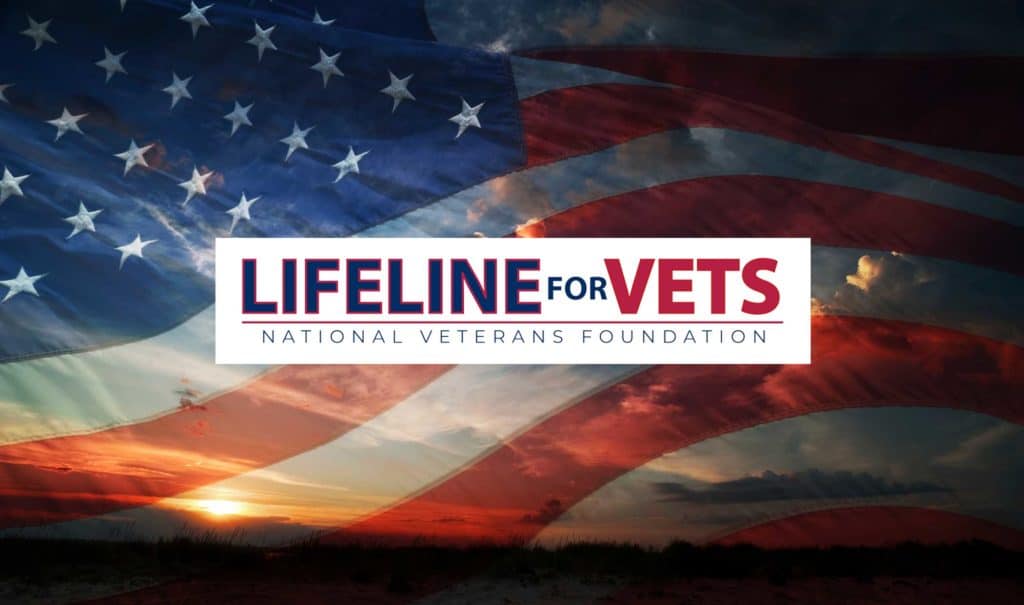The effects of military sexual trauma can impact any Veteran, male or female.
American armed service members volunteer to put themselves in harm’s way in order to serve their country. Yet in many cases, the harm these Veterans face has nothing to do with protecting American interests or defending freedom but in fending off upsetting, unwanted sexual experiences, often in the form of sexual harassment, sexual assault, or rape. When a service member has such experiences, these are referred to as military sexual trauma, or MST.

Anyone Can Experience Military Sexual Trauma
At first glance, you would expect military sexual trauma to be the exclusive purview of female armed service members. In many cases this is true; female Veterans are statistically more likely to experience unwanted sexual advances and behavior. That being said, anyone can experience MST, and that includes male service members as well.
Whether you are physically forced into sexual activity, coerced into it under threat of force or negative consequences, or simply exposed to unwanted sexual touching, grabbing, or remarks about your body and sexuality, all of these fall under the textbook definition of MST; whether a Veteran is male or female is irrelevant.
The effects of military sexual trauma can be profound for Veteran’s mental and physical health.
Additionally, military sexual trauma can occur at any time during active duty or during active duty training. It doesn’t matter if a Veteran was on base or off base at the time, whether they were in active duty during war or peacetime, or whether they were on duty or off duty at the time.
MST can occur as a result of encounters with men, women, civilians, military personnel, subordinates, superiors, friends, romantic partners, or complete strangers; trauma is trauma, and it has a profound and often debilitating effect on our nation’s Veterans.
The Effects of Military Sexual Trauma
Because military sexual trauma isn’t a diagnosis or a condition but instead a lived experience, there are no “common symptoms” of MST. In fact, Veterans often experience a wide range of reactions to military sexual trauma. The onset of these reactions may not be immediate; it’s not uncommon for problems to materialize weeks, months, or years after a traumatic event.
In many cases, Veterans may have already left military service before first experiencing the effects of MST. In the case of many Veterans, MST experiences can have a prolonged effect on not just their mental health but their physical health as well, complicating their ability to work, to have healthy personal relationships, and to function on an everyday level for years after the fact.

There are a number of factors that go into what type of experiences that might be faced in the wake of MST. These include whether you have a prior history of trauma of any type, sexual or otherwise; how those around you responded to you at the time of the experience; and whether if the trauma was an isolated incident or if it occurred more than once over a period of time. Regardless of these factors, there are several different types of reactions that MST survivors, both male and female, may experience. They include the following:
Emotional Dysregulation
Strong, intense emotions are often a response to trauma, including MST. If you suffer with feelings of depression, if you have sudden emotional responses to situations or people that may be more severe than warranted, or if you feel angry, irritable, or anxious at all times, these are signs of emotional dysregulation. This can also manifest in the other direction as well through:
- feelings of emotional numbness or emotional flatness
- an inability to feel happiness, love, or any other positive emotion
- avoidance of physical or emotional relationships
Insomnia
One of the most common effects of MST in Veterans includes insomnia. This can take a number of forms, from trouble falling asleep at night, difficulties in sleeping through the night without waking up several times or being plagued with disturbing dreams and nightmares that often replay the events surrounding the original trauma over and over again. The results of insomnia can make other reactions to MST worse due to lack of sleep and exhaustion and even result in dangerous situations, such as a Veteran nodding off at the wheel while driving.
Disassociation
Survivors of MST often seem like they have their heads in the clouds. They may seem to have trouble paying attention or concentrating, have difficulties staying focused, or have problems with their memory. They may even drift off in the middle of a conversation for a moment. This is known as dissociation, and it can occur at nearly any time without warning.
Destructive Coping Mechanisms
Many survivors of MST turn to coping mechanisms that are unhealthy or even destructive. It’s all too common for a Veteran to develop a substance abuse problem in order to cope with the memories or the unpleasant feelings that accompany military sexual trauma. Whether it’s drinking to excess or taking illicit drugs to silence the voices in their heads or to simply get a few hours of sleep, Veterans run the risk of doing more damage to themselves in the long run.
Relationship Problems
MST survivors often have high degrees of difficulty entering into new relationships or maintaining new ones. Whether it’s with an intimate partner, a family member, or a friend, these survivors often feel disconnected. Many Veterans suffering from the effects of MST can end up as either the perpetrator or the victim of abuse in relationships or become unnecessarily hostile with employers or authority figures.
Physical Health Issues
Finally, and perhaps most telling, is the physical toll that suffering from MST can have on the human body. Such intense levels of stress brought on by being a survivor of sexual trauma manifests in physical health problems such as chronic pain issues, inability to function in consensual sexual situations, eating disorders, stomach or bowel problems, and even just constant jitteriness and exhaustion from the hyper-vigilance of feeling like there’s danger wherever you look.
The Effects of Military Sexual Trauma and Post-Traumatic Stress Syndrome
When it comes to sexual assault while serving active duty, military sexual trauma can often result in symptoms of post-traumatic stress disorder, or PTSD, more often than other types of trauma that American servicemembers experience. This includes being exposed to combat situations.
There are a number of reasons why MST and PTSD are so closely linked, many of which include having to live and work with the perpetrator after the event to the point of even possibly relying on them for your safety on patrol or to provide things like health care or food.
Other possible complicating factors include worries about damaging the cohesion of your unit, fears of showing weakness or vulnerability, thoughts of losing respect in the eyes of others, or even that you’d be jeopardizing your career or your chances of promotion if the truth ever came out. There are dozens of possibilities like these that active service members can experience, all of which can easily heap additional trauma on top of the original incident. This, along with the other pressures of serving in the armed forces, often lead to the complications of PTSD as a result.
Hope for MST Survivors
MST-related services are available at every VA medical center and every facility has providers knowledgeable about treatment for the aftereffects of MST.
If you’ve experienced MST while on active duty or you suspect a loved one may be exhibiting some of the telltale symptoms associated with being an MST survivor, there are ways we can help. You don’t have to go through this alone. Reach out, contact us today and we’ll show you how you can begin to heal from your trauma.
You can be a part of our mission to help Veterans by making a tax-deductible donation!
About the Author
SUBSCRIBE TO OUR BLOG AND NEWS!
By submitting this form, you are granting: NATIONAL VETERANS FOUNDATION INC permission to email you. You may unsubscribe via the link found at the bottom of every email. (See our Email Privacy Policy for details.)
Related Posts




